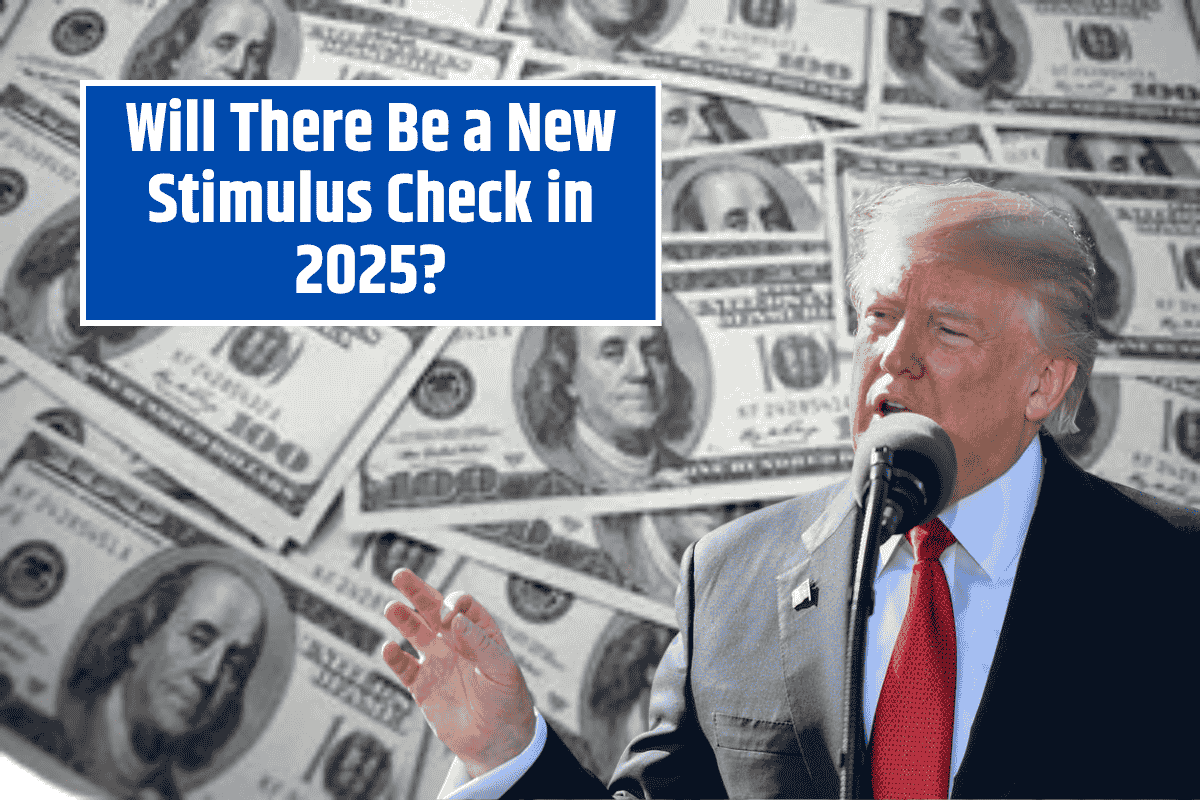As 2025 rolls around, many Americans are holding on to the hope of receiving a new federal stimulus check. The possibility of more financial aid has been widely discussed, fueled by political actions and ongoing speculation on social media.
These payments, also known as “Economic Impact Payments” or “Recovery Rebates,” have been essential for millions of families struggling to meet basic needs. As we move through 2025, taxpayers are keeping a close watch on any official announcements or updates on the matter.
What Were the Latest Stimulus Payments?
To understand the potential for new payments in 2025, it’s helpful to review the previous stimulus checks that were issued during the COVID-19 pandemic. These payments were part of a federal effort to provide financial relief and stimulate the economy during an unprecedented crisis.
First Stimulus Check:
Issued in March-April 2020, the first stimulus check provided up to:
$1,200 for individuals
$2,400 for married couples
$500 for each qualifying child under the age of 17
Second Stimulus Check:
The second payment was issued before January 15, 2021, and provided:
$600 per individual
$1,200 for married couples
$600 for each qualifying child under 17
Third Stimulus Check:
Issued between March and December 2021, the third stimulus check provided:
$1,400 per eligible individual
$1,400 for each qualifying dependent for joint filers
It’s important to note that the deadline to claim the third stimulus check passed on April 15, 2025, and no more applications are being accepted for these payments.
Is There a New Stimulus Payment in 2025?
While people are still hoping for more financial relief, there has been no official confirmation from Congress or the IRS regarding a new stimulus payment for 2025. Speculation around a possible fourth stimulus check has been circulating, with some rumors suggesting amounts as high as $2,000.
However, these are unverified claims and should be treated with caution. Authorities are advising individuals to avoid acting on unconfirmed information, as there has been no concrete plan or official statement supporting these rumors.
Donald Trump’s February 2025 Announcement: A $5,000 “DOGE Dividend”?
One of the more intriguing claims that surfaced in February 2025 was from Donald Trump. During a summit in Miami, Trump suggested that he would consider distributing $5,000 stimulus checks to taxpayers, calling it a “DOGE dividend.”
This plan, according to Trump, would be funded by part of the 20% savings identified by the Department of Government Efficiency.
While this idea sparked excitement among some taxpayers, it’s important to remember that this proposal has not been officially implemented or confirmed by the government. There has been no action on this front as of now, and people are growing increasingly skeptical as time passes without any concrete developments.
What Should Taxpayers Do Now?
As of now, the most responsible course of action for taxpayers is to stay informed through reliable sources like the IRS and Congress. Any official announcements regarding a new stimulus check or financial relief will come directly from these entities.
In the meantime, here are a few tips for individuals to prepare for potential future support:
- Check for Eligibility: Ensure that you are eligible for any existing government programs, like unemployment benefits, tax credits, or local relief programs.
- Monitor Official Sources: Follow updates from the IRS and Congress through their official websites or verified news outlets.
- Avoid Scams: Be cautious of social media posts or messages promising payments or relief. Scammers often exploit public uncertainty to steal personal information.
While many Americans are hopeful for another round of stimulus payments in 2025, there is no official confirmation of a new check, whether it be the widely discussed $2,000 or the speculative $5,000 DOGE dividend.
The government’s past efforts were designed to provide critical relief during the COVID-19 pandemic, and there has been no indication that such payments will continue on a regular basis.
Taxpayers are encouraged to stay informed through official channels and avoid acting on unverified claims circulating on social media. As always, be cautious of scams and rely on trusted sources for the most accurate and up-to-date information.
